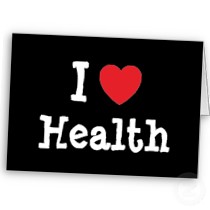Allergies
Allergies are reactions that the body does to handle foreign substances that have entered it. These substances can be in the form of foreign proteins or they can be chemical in nature. Foreign proteins may include plant pollen, animal dander and waste, molds or even foods, as in the case of food allergies. Chemicals can come from perfumes and fragrances, detergents, food additives, cosmetics, plastics, disinfectants, petroleum products and so on.
The most common allergy reaction is the histamine reaction. Histamine is released in the body from special cells with a specific purpose of causing the body to “wash” the contaminants away. It thins the fluids of the body and makes cell membranes more permeable so that it is easier for the fluids to pass through so that this can occur. The fluids bathe the cells of the body and carry the contaminants out through the special fluid vessels of the lymphatic system. The lymphatic system processes and filters the foreign matter and the contaminants are dumped into the liver and occasionally the kidneys where they are further broken down as needed and expelled from the body in either the bile or the urine. Should the liver and kidneys not be able to handle the flow of lymph and contaminants, the lymph toxins will dump into the sinuses or they may in some instances come out through the skin. Hence, runny nose and sinus complaints and skin rashes.
In truth, this histamine allergic reaction is an emergency reaction of the body. It happens when the levels of improper proteins or chemicals exceed the levels that the usual channels of detoxification and excretion (lymph, spleen, liver and kidneys) normally handle. Using more fluid to wash these foreign irritants away is indeed a good emergency solution. However, these fluids must come from somewhere else in the body. As a result, depending on the type of allergy, the eyes can get dry and itchy and dark circles can form under the eyes from the loss of fluids. Fluids can be robbed from the joints and other parts of the body and this can result in stiffness and even headaches from low fluid pressure in the arteries or brain and spinal fluid. Also, excess fluids between cells can make it more difficult for oxygen to get into the cells. This may be, at least in part, why fatigue almost always accompanies allergies.
People who have allergies usually have a body full of foreign proteins or chemical toxins or some combination of both. In other words, their normal channels for handling these substances are already “maxed” (utilized in maximum capacity). Hence, this emergency reaction will kick in much sooner than with the average person. Foreign proteins and toxins may be from chronic infections (usually unknown) in the soft tissues or fluids of the body, from parasites or from a malfunctioning bowel which is allowing proteins and toxins to pass into the body which ordinarily wouldn’t (as in food allergies). Chemical toxins may come from environmental chemicals that have built up in the body over the years, chronic ingestion of food preservatives, colorings and flavorings or from other chemical sources. Bowel toxins may also be generated from food that is not being digested properly. It may be that the liver and kidneys are malfunctioning so that all these bad materials are backing up in the body instead of being properly expelled. It has also been observed that if the heart and nervous system are weak, the body is more prone to allergic reactions. This is especially the case if a person seems to be allergic to practically everything. There seems to be an electrical field phenomenon associated with the heart and nervous system that is intimately related to allergies and the immune system in general. There is more on this and over reaction to substances in the chapter on nerve facillitation.
Allergies may be complex in nature but are simple in principle. There is an emergency reaction that is occurring because there are bad things in the body. In order to prevent allergic reactions from occurring, it is necessary to create a buffer zone that allows a larger amount of allergens to be handled without having this emergency reaction kick in. This requires ridding the body of pus and other foreign proteins, toxins and harmful chemicals in general and making sure that the liver, kidneys, spleen, heart and nervous system are all functioning normally. Exactly what bad proteins, toxins and chemicals are in the body, where they are coming from and how to get rid of them lies in the realm of Cause Point Correlative Testing. Exactly which organs are malfunctioning and what is necessary to correct them likewise requires Cause Point Correlative Testing. When these answers are found and acted upon, it will be found that the person is no longer so sensitive to the many different allergens in the environment and that they can work and live life without being miserable.











